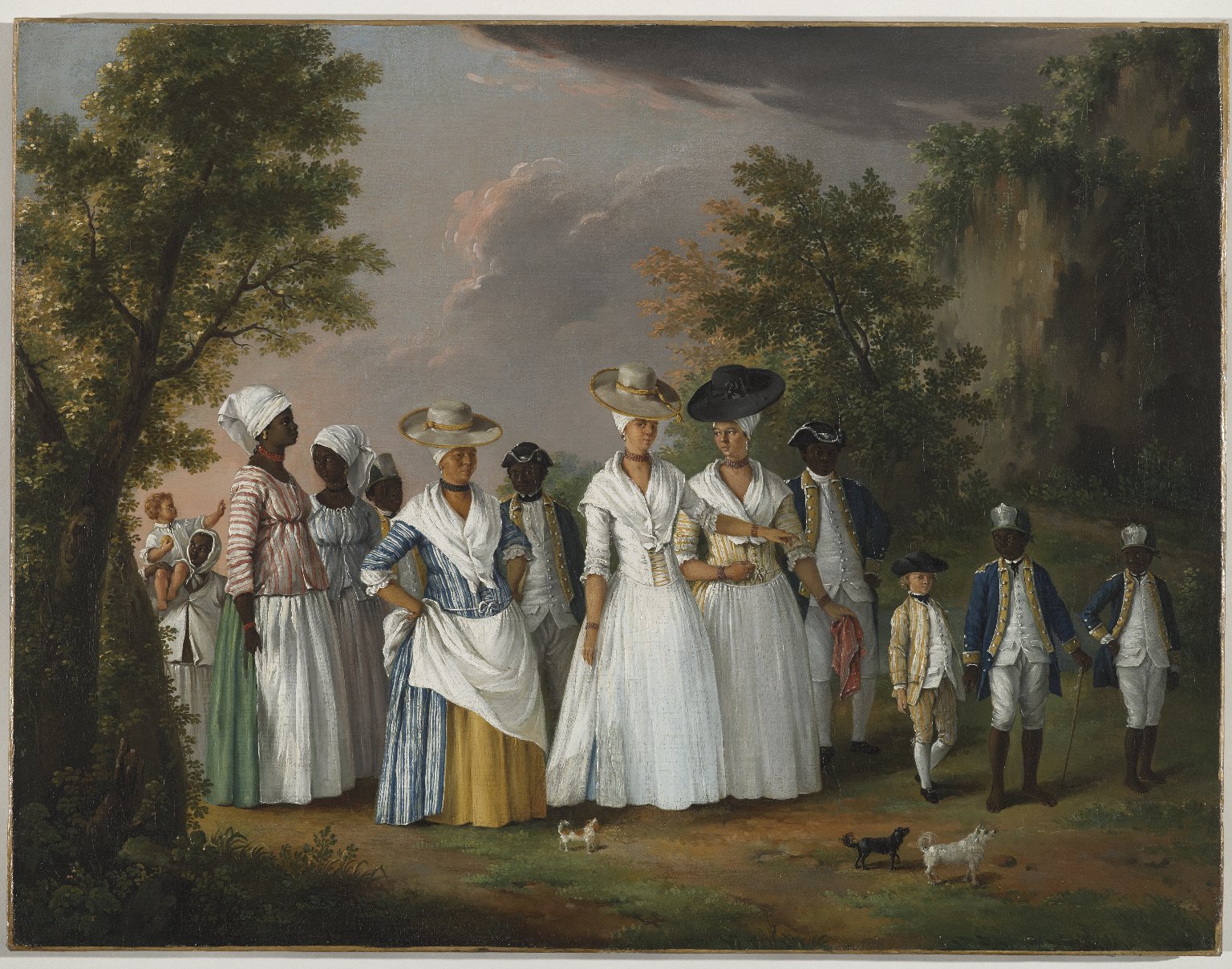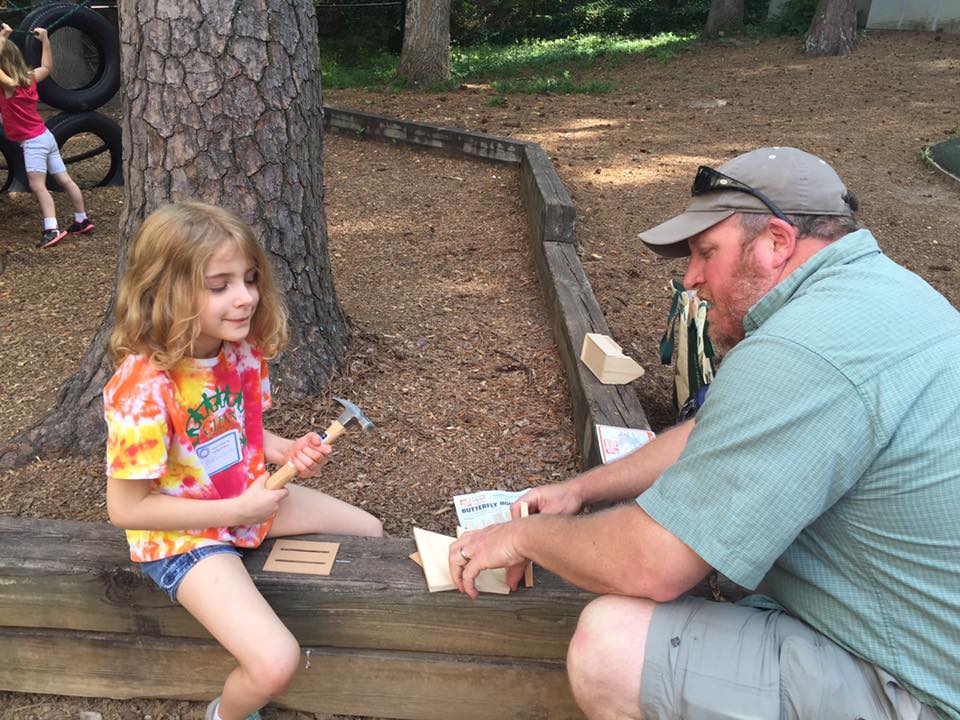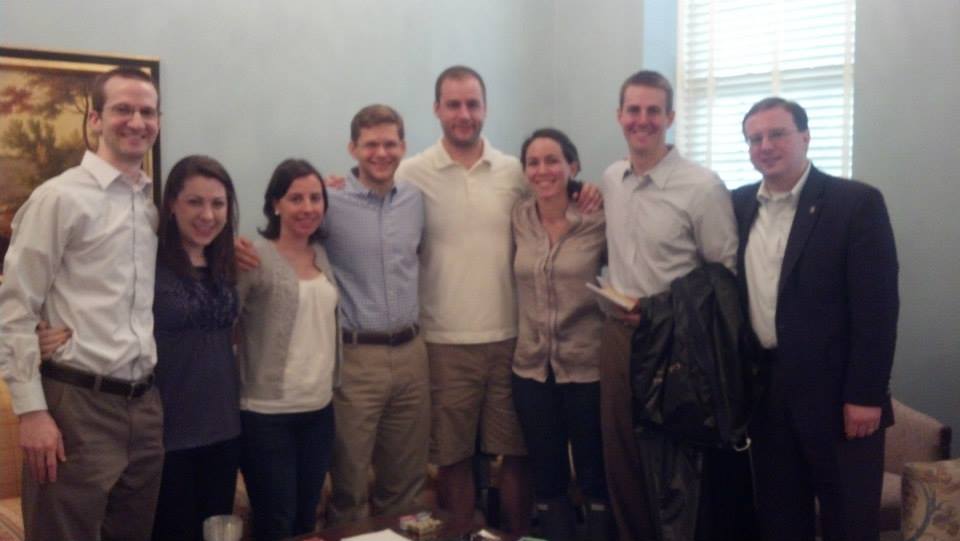Our writer this week is Bruce Cauthen, son of one of our older adults Melvin Cauthen. Bruce is a part of our book study and discussion group this fall on Waking Up White and Finding Myself in the Story of Race.
I was delighted to learn from the August issue of Glenn Notes of the upcoming study group, co-chaired by Carol Allums and Pastor Alice, examining Debby Irving’s book, Waking Up White and Finding Myself in the Story of Race. I knew that I had to be a part of what promised to be – and, which, has certainly proven to be - a very worthwhile exchange. My eagerness to participate stemmed from the fact that I have been totally immersed in an extensive research project which analyzes the social construction of race in colonial South Carolina. The study is historical, biographical, socio-cultural, and…at its heart…genealogical.
Indeed! Three years ago I made the most remarkable discovery that I am descended from a woman of color who occupied a unique – and seemingly incongruous - niche in 18th century society. Mary Ann Pendarvis Rumph (c.1732-1794), my 6th great grandmother, was the biracial daughter of an aristocratic Charleston planter, Joseph Pendarvis (1699-1735), and his enslaved African mistress, Parthena (c.1702-1734). Joseph never married and left his considerable fortune to Mary Ann and her six siblings whom he had with Parthena. (And, to make a long, complex, and, utterly astounding story short): due to their large inheritance, Mary Ann and her five surviving brothers were able to transition into relatively high-status white society; and, they were socio-legally identified as white. Her elder brother, James Pendarvis (c.1723-1796), would become, perhaps, the wealthiest person of color in British North America. A concurrence of political, economic and social interests actively promoted their inclusion into the colonial establishment. And, as the Pendarvises became increasingly entrenched into affluent white society, powerful forces converged to conceal their African ancestry.
Suffice it to say that the conspiracy to camouflage the racial past of my Pendarvis forebears has, sadly, been one of the more effective cover-ups in American history. And, it was due, in no small way, to the unsavory “success” of this cover-up, that I only disentangled my own descent from the Pendarvises three years ago. And, this exciting discovery has prompted a nearly compulsive sense of mission to unearth all I can about the captivating saga of the children of Joseph Pendarvis and Parthena. It has been an exhilarating, fascinating, and – considering the fact that so many of the elements of the subject have been obscured by time, anachronistic perspectives, and instrumental revision – an infinitely challenging undertaking. I initially intended to draft a brief research note (in advance of an anticipated monograph)…however, the preliminary overview (which I recently completed as a synopsis for prospective publishers) is already in excess of 70, 000 words and I have only scratched the surface.
Agostino Brunias, “Free Women of Color with Their Children and Servants in a Landscape”, ca. 1770-1794, Brooklyn Museum of Art, Gift of Mrs. Carll H. de Silver, in memory of her husband, by exchange gift of George S. Hellman, by exchange. Digital photo courtesy of Brooklyn Museum.
Yet as intriguing as the historical and sociological aspects of the Pendarvis narrative are from an academic perspective, I have found the personal dimension of the realization equally compelling. For a (then) 51 year old white man, born and raised in South Carolina - whose interest in genealogy has always been most acute, but, who had never detected even the most remote cue as to question that he was the product of anything other than European ancestry - the revelation, admittedly, came as something of a shock. Yet, any surprise I may have initially experienced was very quickly… within about ten minutes… eclipsed by an intense sense of pride to be descended from such extraordinary antecedents. However, this exuberant reaction was inevitably augmented by an ongoing process of introspection. The recognition that I descend from enslaved African ancestors has prompted me to critically reassess so many of my own preconceptions regarding the divisive deliberations about “race” which roil America today… the issues of white and black, privilege and vulnerability, and complacency and disparity.
Although the trajectory of the Pendarvis siblings was exceptional and hardly representative of the contemporary norm, it cannot be dismissed as an anomaly. Parthena’s progeny penetrated a racial borderline – ostensibly formidable in theory, and yet, evidently porous in practice. The social construction of “whiteness” in colonial South Carolina was selective and not always exclusively determined by skin color; wealth was a decisive factor as well. At least in this particular instance, the very concept of race appeared to be situational. And even though there are aspects of the Pendarvis “pathway” which are distinctive, if not patently unprecedented, the biracial heirs were not the only persons of color who underwent similar processes of amalgamation into the white community during various periods of American history.
In any event, the Pendarvis experience inevitably attests that history did not always unfold in the manner in which we envision it today. Our past is complicated; riven with contradictions; and is, undoubtedly, more accurately understood when viewed through a kaleidoscopic lens rather than a Manichean filter. And, it is in this context that I think we can all learn a valuable lesson from the Pendarvis saga: regardless of how militantly defined, exclusively drawn, and immovably fixed the battle-lines in the rancorous debate over race may seem, the actual boundary between white and black in the United States cannot be so easily established. Ours is a shared heritage which must supersede color, class, and conflict; and, we have only to look back into our collective experience to reflect upon certain nuances and particular dynamics which might have foretold a different outcome than the one we presently confront. Although the historical record on race relations has been admittedly bleak, we need not be held hostage to the fatalism of prior centuries. No, we must rediscover an older and more authentic past in which, far from being sequestered on opposite sides of an unbridgeable chasm, white and black in America were far more intimately and inextricably entwined than we could possibly imagine today. It is this basic reality which we must contemplate, cultivate and articulate to remedy our present and shape our future.
My most remarkable discovery has exerted a truly transformative influence – intellectually, morally, and, spiritually – on my being. Although my African ancestry is admittedly distant, the impact of this awareness is palpable and profound. It is a constant counsel which admonishes me that the most indispensable of all virtues is empathy; and, it reminds me that kinship transcends the familiar and encompasses humanity itself. Moreover, it reveals to me that we interact against the backdrop of an intricate tapestry – meticulously woven of various and diverse threads – and, as we are also part of this splendid textile, it is only when we step back and afford ourselves a broader vantage that we can fully appreciate the aesthetic unity of its design and the vibrancy of its myriad hues. And, my most remarkable discovery also inspires me to vigorously look for the hidden springs of edification, empowerment, and redemption which lie buried beneath the surface of our routine. Indeed, how tragically incomplete my life would have been had I not excavated this enlightening font of consciousness three years ago.
Bruce Cauthen

















































